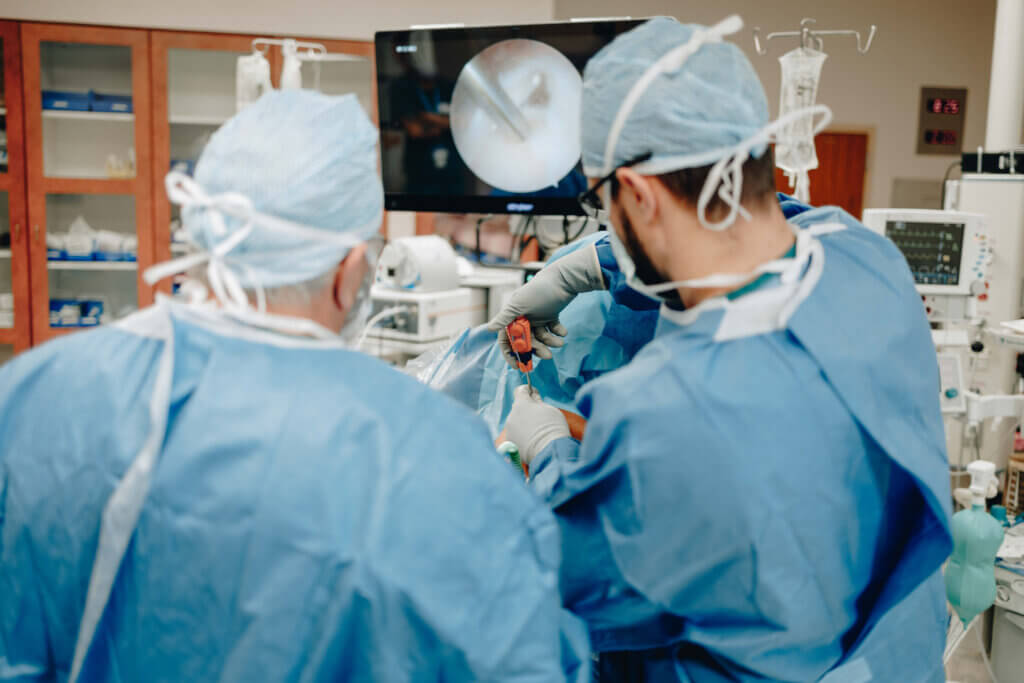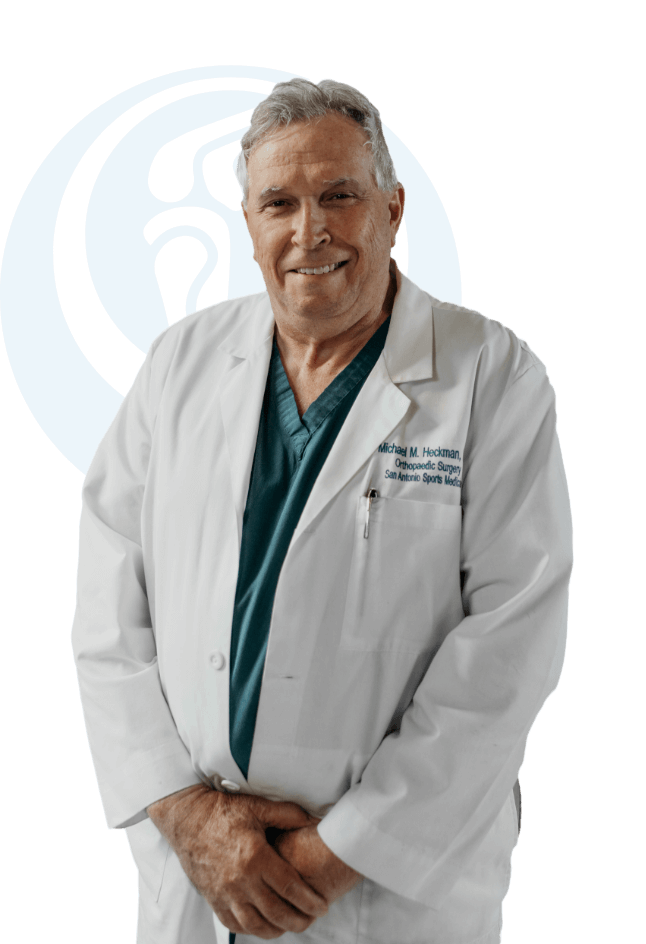
Shoulder surgery is a type of surgery that involves repairing or correcting problems with the shoulder joint. The shoulder joint is a ball-and-socket joint, and surgery can be performed to repair damaged bone, tendons, or ligaments. Surgery may also be performed to remove bony growths or tumors from around the shoulder joint.
Shoulder surgery can refer to several different procedures, all aimed at repairing or correcting damage to the shoulder joint or surrounding tissues. This could include:
Labral Tear Shoulder Surgery
Labral tear shoulder surgery is another common type of shoulder surgery. The shoulder joint is a ball-and-socket joint, and the labrum is the cartilage that helps to keep the ball in place. A tear in this cartilage can cause pain and instability in the shoulder. Dr. Heckman can repair or resect the tear arthroscopically which should help to alleviate your symptoms.
Shoulder Replacement Surgery
Shoulder replacement surgery is an option for people who have severe shoulder arthritis. In this procedure, the damaged parts of the shoulder joint are removed and replaced with artificial components. Shoulder replacement surgery can be a very successful way to relieve pain and improve function in people with advanced shoulder arthritis.
Reverse Shoulder Surgery
Reverse shoulder surgery is another option for people with shoulder arthritis and chronic tearing of the rotator cuff tendons. In this procedure, the ball-and-socket joint is reversed, which helps to stabilize the shoulder joint and take the pressure off of the damaged rotator cuff tendons. This can provide significant pain relief and improve function in people with shoulder arthritis.
Shoulder Arthroscopy
Shoulder arthroscopy is a type of surgery that is typically performed using a small camera to get a better view of the joint. Dr. Heckman can use arthroscopic shoulder surgery to diagnose and treat problems in the shoulder, such as rotator cuff tears, impingement, instability, labral tears, SLAP tears and arthritis.
Shoulder Impingement Surgery
Shoulder impingement surgery is a type of surgery that is designed to relieve pressure on the rotator cuff. It is also known as subacromial decompression surgery. In this procedure, Dr. Heckman will use the arthroscope to remove acromial bone spurs and any tissue that are impinging on the rotator cuff. This can help to relieve pain and improve function.
Shoulder Dislocation Surgery
Shoulder dislocation surgery is typically performed either open or with an arthroscope to improve stability of the shoulder joint. A shoulder dislocation is a common injury, especially in athletes and can lead to significant problems if left untreated and the dislocation recurs. In this procedure, Dr. Heckman will use sutures or anchors to repair the torn ligaments or labral tissues that are causing instability in the joint.
The specific type of surgery will be determined based on the specific problem being addressed. For example, someone with a rotator cuff tear may need arthroscopic surgery to repair the tear, while someone with arthritis may need a joint replacement. The surgeon will also consider factors like age and overall health when making decisions about what type of surgery is best.

Shoulder Pain After Surgery
Though almost all patients will receive a pain block from the anesthesiologist to reduce post-operative pain it is not uncommon to experience shoulder pain after surgery. But don’t despair–there are things you can do to manage your pain and get back to your normal activities.
First, it’s important to understand that the pain you’re experiencing is most likely due to the trauma of surgery and is not indicative of a problem with the actual surgical site. The good news is that this means the pain will eventually go away on its own. In the meantime, there are a few things you can do to ease your discomfort.
One simple but effective measure is ice. Applying ice to the sore area for 20 minutes at a time can help reduce inflammation and pain. Make sure to wrap the ice in a towel or cloth so that it doesn’t come into direct contact with your skin, as this could cause further irritation.

With a little time and care, your shoulder pain will eventually go away, and you’ll be back to your normal self in no time.
You can also take over-the-counter pain medication like ibuprofen to help manage discomfort. Just be sure to follow the instructions on the label carefully and never take more than the recommended dosage. If you’re still in pain after a few days of trying these home remedies, contact Dr. Heckman. He may prescribe stronger medication or suggest other treatments.

Shoulder Surgery Recovery Time
There is no one-size-fits-all answer to this question, as the recovery time for shoulder surgery will vary depending on the individual and the type of surgery performed. In most cases physical therapy will be started soon after the procedure to assist in reducing pain and stiffness and to improve function for daily activities. However, it is generally recommended that patients allow themselves at least four to six weeks to recover before returning to their normal activities. When your shoulder surgery is scheduled Dr. Heckman will discuss with you what you should expect regarding your recovery, but If you have any other specific questions or concerns about your recovery, be sure ask Dr. Heckman. He will be able to provide you with specific guidance based on your individual case.
Although shoulder surgery can be a bit scary, it is also an effective way to treat a wide variety of conditions. Whether you need frozen shoulder surgery, labral tear repair surgery, or another type of procedure, there are many different options available to help improve your symptoms and get you back to your normal activities. If you’re considering shoulder surgery, schedule a consultation with Dr. Heckman to learn more about your options and find out if it is the right choice for you.